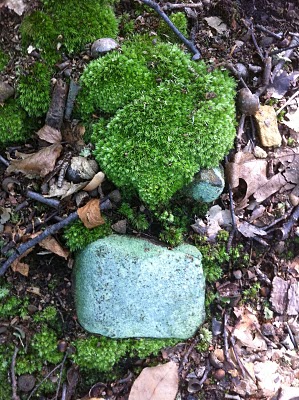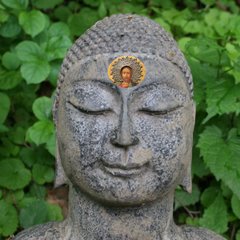I
expect everything that takes place in my life take place within an
established order. After all, there is an order–we inhabit a universe
full of laws, and I even presume to understand that. I interpret
everything according to my current understanding of the order that I am
in, or, at least, the order I can perceive.
What I don't see is that I am asking for a revolution.
I think that when I work, when I engage in what I call a "spiritual"
practice, somehow it fits into what I know. Whatever comes, whatever
happens, will be bartered, transformed, trimmed, clipped, wedged, and
pigeonholed into where I already am. The idea that everything will
somehow step directly outside itself–that is, that nothing will be the
same, and that all of what I call order will come to a definite end, if
any real transformation occurs–this is terrifying. It can't even be
considered. It isn't even possible to consider it, because it lies out
in what we call the unknown unknown.
I don't know what I don't know, and I can't even know that I don't know it.
For
life to be truly experienced in a new way, an inordinate amount of
Grace is necessary. This does not have anything to do with me, because
Grace is a force that lies outside me and is not under my command. It is
inordinate in two ways: first of all, if I am to receive life as life
truly can be received, already, it is impossible for me to do this. Only
the intervention of higher forces can mediate that experience. So it is
inordinate in that it is in excess of anything I know; larger, more
generous, on a scale that I know nothing about. In the second way, it is
inordinate in the strictest sense of the word: it does not belong to
the known order–it lies outside it.
We use the
words "attention" and "prayer" as though they were different, but in
many senses that is not the case. Attention is a form of prayer, and
prayer is a form of attention. Both of these actions in me are
necessary, but neither one is sufficient. Only Grace is sufficient, and I
cannot know Grace. It can know me, but I cannot know it.
So I ask for a revolution that I don't know about and don't even really
believe in. It isn't, after all, possible to believe in the unknown.
One can only believe in the known. So the unknown cannot even be a
belief of mine. If I believe it, it has already been reduced to the
scope of my limited understanding and vision. Only when what arrives is
both unknown and unbelievable will I know; and then the words will
fail.
The demand is enormous. Grace does not
arrive intending to take half measures, or settle for less than
everything. Is it a demand I am familiar with; the kind of demand I
would put on myself? Of course not. This demand puts me in the position
of the lowest common denominator, and takes an eraser to the blackboard
I scrawled my life on.
It is as though a man
were asked to drink strong wine, never having had it before, and not
knowing how difficult it is to drink wine that is so strong. Even with
the first draught of the wine, he is overwhelmed. Perhaps, even though
he has spent his life wishing for such strong wine, he suddenly sees
that he knew nothing about it.
Someone must hold his head up to help him.
May our prayers be heard.















